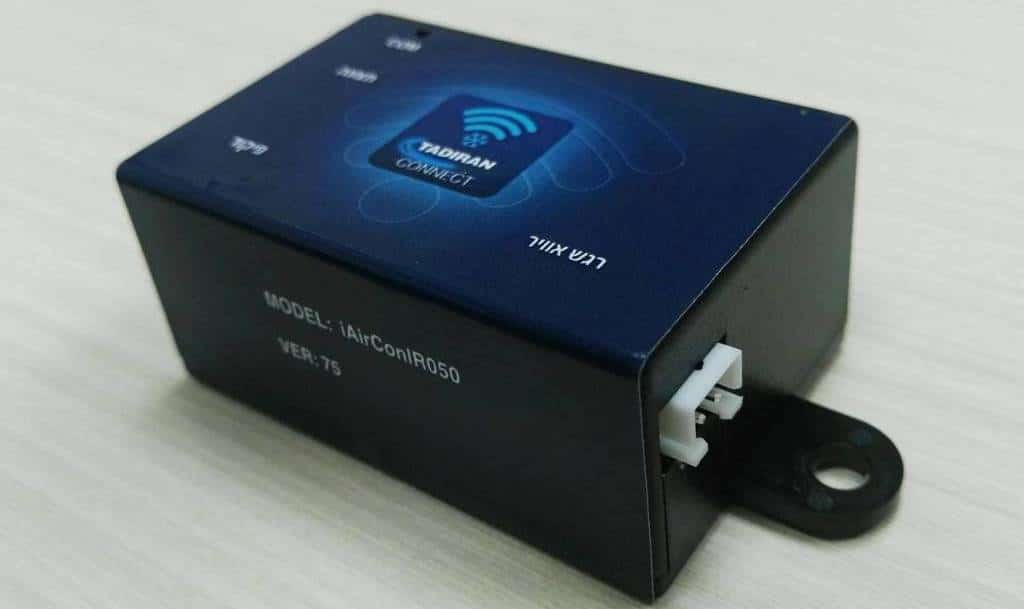Code seperated into pyekonlib. and this integration
Library will auto-onstall, but please read the library README.
Using this component may effect your hass installation stability, may report falsly the state of your HVAC, commands may seem to be working but they might not (such situation where u think you turned off the ac, but it didn't)
This integration basically BLOCKS communication with the cloud server, with an option to enable "forwarding" messages onto the cloud in order to keep working also with the app
Short: Tadiran mini-central ACs, other iAircon/EKON/Airconet Based ACs Long: There's a compony out there Called EKON, They have a product named iAircon which is a esp8266 hardware device, or the marketing name "Airconet+" (available on play store, formerly "Airconet") that connects to the HVAC system
Israeli HVACs manefacturer "TADIRAN" Uses this ekon solution for their "Tadiran connect" product, designated for some of their "mini central hvacs"
EKON iAircon / Tadiran climate component written in Python3 for Home Assistant. Built as a result of research into the Ekon apps and device communication with the server
- Currently, only supports one concurrent device
- Local control of your HVAC, even without internet
- No flashing/burning of the device needed
- The device will communicate with a server that would setup on you're HA installation
- Auto-configuration of the device to communicate with the HA server; This is required to be performed only once.
- Optional - keep using your cloud-based app! :D - See configuration
ekon-local integration would run a UDP server on your HA host. You would have to tell the integration to configure the device to communicate with this server, instead of the genuine one (Either Airconet/Tadiran connect or Airconet+). or do it yourselfs. see pyekonlib for that
Note that configuration or auto-configuration need to only work once, so if the device is using DHCP and switches IP address it shouldn't be a problem, it saves the server in it's configuration.
-
Copy the custom_components folder to your own hassio /config folder.
-
configuration.yaml -
climate: - platform: ekon-local name: MyHVAC # Please, no spaces udp_server_port: 6343 # Can be anything, make sure it's accessible udp_server_addr: 192.168.1.10 # Optional, HA ip address device_addr: 192.168.1.25 # Optional, for auto-configuring the device
- Configure
nameas your liking udp_server_portis a UDP port you need to make sure that the device can talk with HA, bidirectional. - Can be any valid port numberudp_server_addr- Optional, for auto-configure method, the ip address of your HA host.device_addr- Optional, for auto-configure method, the ip address of the EKON Device.
- Configure
-
If you would like to keep working with the app, you would need the server details of the server for the proper application you are using, see here for a list of ip addresses and ports for the original apps-udp server.
Add this to theclimate ekon-localconfiguration entry (Same ident, just below)forward_addr: 185.28.152.215 forward_port: 6343
-
OPTIONAL: Add info logging to this component (to see if/how it works)
logger: default: error logs: custom_components.ekon-local: debug
- No AC Shows up on the Frontend
- Disconnect your internet, and restart HA or Reset the device (power cycle)
- The device's server might not switch if the device is currently connected to the real backend
- Activate debugging, did you see the device connecting to the server in the logs?
if not, try to manually configure it to use your server
- Disconnect your internet, and restart HA or Reset the device (power cycle)
- Again, try the library page if further issues
